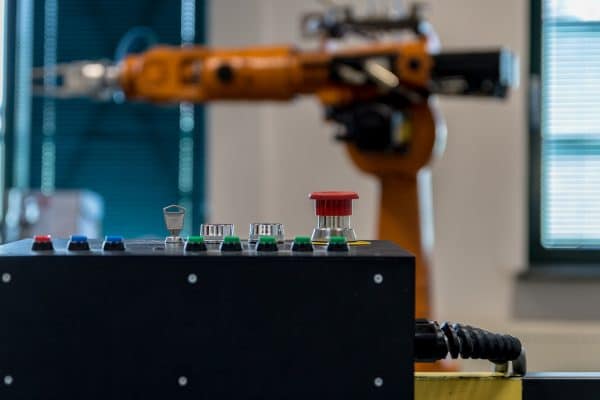Industrial automation services allow manufacturers to increase productivity through computerized technologies and applications. In doing so, repetitive/mechanical tasks associated with one person in production and manufacturing processes are replaced by automation. Automated devices can be programmed to control processes but can also make decisions during production processes. Subsequently, automation achieves output at a higher and more consistent level, increases quality, and allows for flexibility in manufacturing processes.
Benefits of Industrial Automation Services

Types of Industrial Automation
Manufacturers have a variety of industrial automated systems to choose from. In large part, the selection of an automated process will be driven by the type of production, products, output, and so forth the company engages in. Here is a list of the industrial automation services and systems available:
Fixed Automation
Fixed automation manufacturing, or hard automation, is a system in which the automated production processes and assembly are preset to produce a single product. In other words, Fixed automation systems are geared to manufacture the same product style. Once a fixed system is in place, it cannot change product styles. The sequence of production and operation is fixed by the configuration of tooling, equipment, and machines allocated for high-production needs. The complexity of integrating and coordinating those many sequences and operations in producing a single unit is a defining characteristic of fixed vs. flexible automation.
Programmable Automation
In programmable automation, equipment configurations, and operation sequences are changed based on commands that are coded or programmed into the system, with new programs written for each process. Products can be produced in batch quantities ranging from several dozen to as high as thousands of units produced in one run.
Flexible Automation
As the name suggests, flexible automation allows manufacturers to adapt quickly and respond to production needs. The system can be configured, i.e., programmed, to produce multiple product types simultaneously. Machines are controlled via computerized systems programmed and operated by humans utilizing computer coding or HMI (Human Machine Interfaces). Flexible automation systems are ideal for batch processes for companies that produce various products in low-to-medium production runs.
Robotic Process Automation
Robotic process automation, or simply RPA, is a relatively new business tool designed to administer the business affairs of companies. RPA essentially automates business processes by one computer program over another. The actual robots in RPA are the software “bots” instructing other applications. RPA technology bots perform dull, repetitive tasks previously done by people in office environments. In short, RPA can save companies money by reducing cycle times, boosting efficiency, and increasing productivity related to business transactions.
Factory Automation
Factory automation is a holistic industrial process that utilizes technologies that automate tasks, processes, and production in industrial manufacturing environments. The process is designed to increase manufacturing output and maximize efficiency at reduced costs. In factory automation, products are manufactured, assembled, packaged, machined, etc. Control systems employ computer software to program equipment and machinery to perform manufacturing tasks historically performed manually.
Process Automation
Process automation is used to automate industrial control applications that operate factories, plants, and manufacturing facilities. Automated process applications continuously monitor and control analog and digital measurements, using software designed explicitly for controls of systems once done by people. An automated network interconnects controllers, sensors, actuators, valves, operator terminals, and other hardware to regulate such process variables as temperature, flow, pressure, vibration, speed, switches, etc. The system uses open and closed control loop feedback systems, such as Cascade control loops, PID (proportional integral derivative) controllers, and feedforward controls, to monitor and control process variables. For more info, see our post on factory vs. process automation.
EAM offers our customers a range of engineered automation products and support. Automotive, food processing, microelectronics, and precision medical equipment technology are just some of the industries served by EAM. As a leader in custom industrial automation services, EAM solutions help companies improve efficiency, reduce waste and increase margins.
